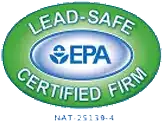Let’s talk about mold. More specifically, let’s talk about some important ways to detect it in your home. Believe it or not, mold could be present in your house without you even realizing it, so it’s crucial to know how to properly identify it. Luckily, there are quite a few easy-to-spot signs that you’ve got a mold problem.
Before calling in the experts, it’s important to get a basic idea of what you’re dealing with. Here are some common signs that you may have a mold infestation on your hands.
Musty Odor
If it smells like mold, more likely than not, it is mold. Mold gives off a distinct, musty smell. Most people are familiar with this odor from damp basements, which are an ideal environment for mold to grow. The stronger the smell, the higher the chance is of mold growing in that location.
If you notice this smell in bathrooms, under kitchen sinks, or in other rooms in general, it is a strong indication that a mold issue is present. Outside, while the smell may be harder to identify, it’s common for mold to grow wherever there’s a lot of moisture, like around roofs, windows, and pipes.
Water Leaks
Water is the primary component for activating mold, along with a food source, light, and temperature. If there is a leak in your home that you can’t see, there is a good chance that mold could have developed. Hidden leaks, such as those in wall cavities or attics, are especially likely to go unnoticed. Look out for indications of hidden leaks such as stained ceiling tiles, or cracks and splits in the roof or ceiling.
Past Flooding
If your house has ever been flooded in the past, there’s a chance you may have mold. If there’s been a flood that left materials in your house, like drywall or ceiling tiles, wet for 24 hours or more, it’s a good possibility that mold has grown there. Past flooding may also indicate hidden mold, so make sure to look for indications of mold that you cannot see.
Paint Deterioration
When there’s a lot of moisture in a room, paint on the walls may start to flake, peel, or crack. Also, keep an eye out for paint that’s bubbling or bulging, as this indicates moisture buildup behind the paint. The more moisture there is in a room, the more likely it is for mold to grow, so watch out for these indicators of excessive moisture.
Dampness
Some rooms just feel damp. High levels of humidity are ideal for mold. If a room has high levels of moisture and little to no ventilation, then there is a good chance that mold has found a home there. Thankfully, your body can tell when one room is different than all the rest. When it comes to mold, our bodies tend to be the best proverbial canary in the coal mine.
Health Issues
If there’s a mold problem in your house, your body itself will do a pretty good job of telling you. While it’s true that not everyone is allergic to mold, even those that aren’t could experience symptoms of mold exposure. The symptoms of mold exposure are similar to those of a cold and include itchy and/or watery eyes, coughing, sneezing, headaches, and a runny nose.
Visible Mold
Not all mold is hidden, and it’s often very easy to spot and identify. However, it’s not uncommon for people to see mold in their house without even realizing that it’s mold. Or, they only see a small amount and don’t take care of it right away. Still, even small amounts of mold mean that the conditions are right for mold to grow, and it may be present elsewhere in the home.
To help you remember some of these tips for detecting mold, just remember the acronym M.O.L.D. which stands for Musty Odor, Leaks, and Dampness. If one or more of the M.O.L.D. criteria is met and you have reasonable concerns, then you know it is time to get a licensed professional involved. Remember, it’s not a good idea to attempt to go right into remediation by yourself, as you can quickly make the problem worse than it is. Having a professional come out and perform a mold inspection can confirm whether mold is present, and if it is, they can take care of the mold for you.








